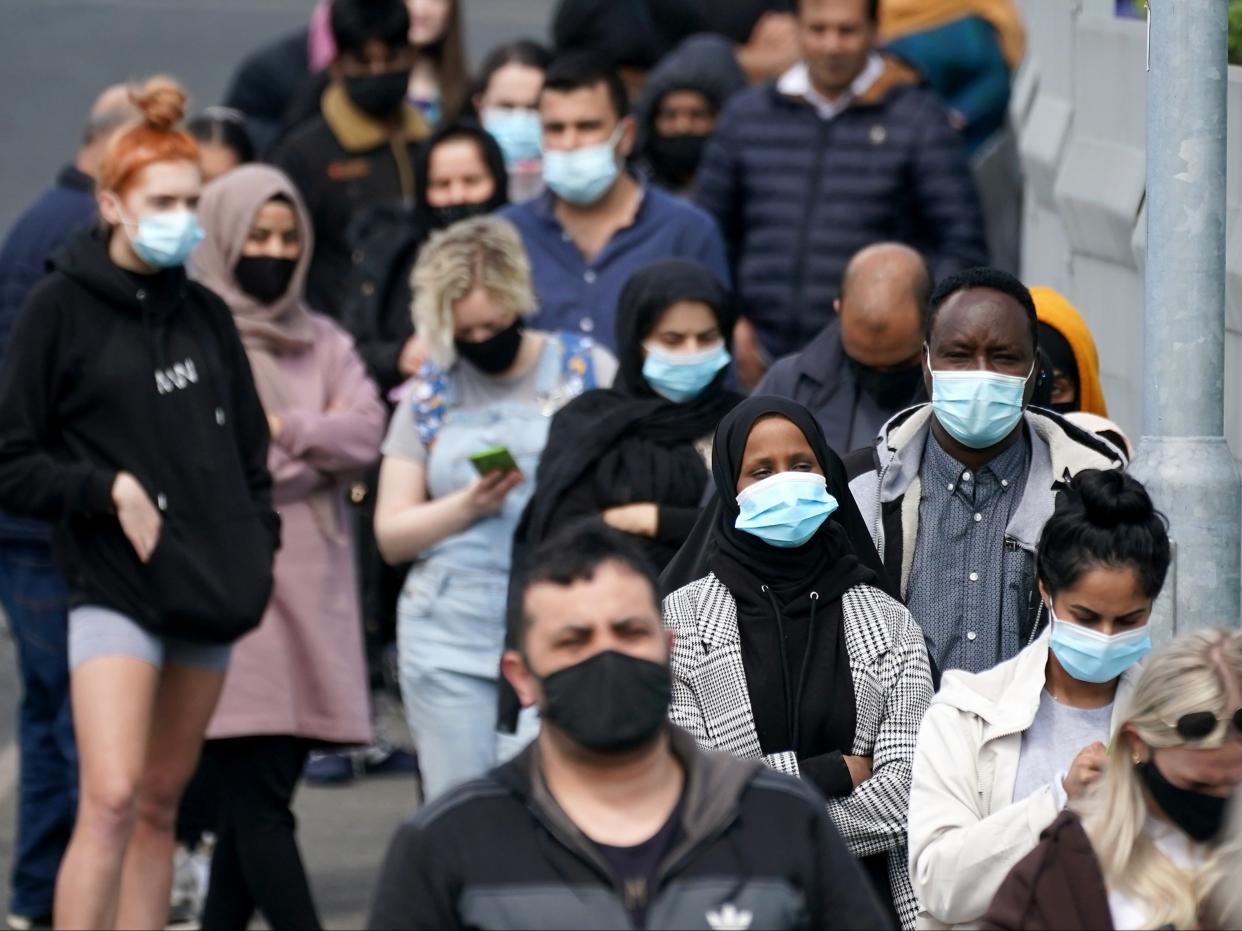The world will not overcome the Covid-19 pandemic unless global leaders like us work together

‘We need all governments to join the effort to secure that vital funding
(Getty)The world will not overcome the Covid-19 pandemic unless global leaders work together to secure a rapid and significant increase in financial support to the Access to Covid-19 Tools (ACT) Accelerator.
In the last year, the world has come together to develop effective vaccines and a multilateral platform for allocating them more efficiently across the globe. However, the value of this remarkable progress will be short-lived if these vaccines are not made available to enough people worldwide as fast as possible.
As co-chairs of the ACT-Accelerator Facilitation Council, we have developed a financing framework for fair contributions to ACT-Accelerator. The goal of this burden-sharing model is that the financial costs for delivering access to all countries are divided fairly across high-income and upper-middle-income countries, alongside contributions from the private sector and philanthropy.
We need all governments to join the effort to secure that vital funding. We also need governments with a projected surplus of vaccines to start sharing doses without delay via COVAX (Covid-19 Vaccines Global Access), a mechanism for pooled procurement and equitable distribution of vaccines. And we need governments alongside the private sector to facilitate technology transfer and scaling up vaccine manufacturing in all regions.
As Covid-19 continues to engulf India, scenes from around the world could not be more different. In some wealthy nations, vast immunisation programmes have made it possible to start opening the society again; in great contrast to many poorer countries where people are being turned away from hospitals in desperate need of oxygen and essential personal protective equipment (PPE). The stark difference in access and equity could not be more extreme.
The picture is particularly stark across sub-Saharan Africa, where millions of frontline doctors and nurses still face a wait of many months for their vaccines, despite a call by the World Health Organization for all healthcare workers to start receiving inoculation within the first 100 days of 2021.
We have now reached a critical point in the pandemic. The scourge of coronavirus is far from over. The number of new cases of Covid-19 is still growing exponentially, with around eight times as many cases recorded weekly than a year ago.
The dangers are great. More transmissions will lead to more virus variants, some of which will be less susceptible to current vaccines – or might evade them altogether. These new variants will inevitably spread around the world, which means that even wealthy countries with high levels of vaccine coverage can have no guarantee of security. We can’t say this often enough: no one is safe until everyone is safe.
The best way to stop this threat is to vaccinate widely and quickly across the globe and ensure that rigorous test-and-isolate strategies are universally implemented. That will suppress virus circulation and curb the number of new mutations. But there are major obstacles to this goal in the form of a lack of vaccines, tests and treatments, lack of funding to order future doses from manufacturers, and restrictions on exports from several key countries.
It is not easy for governments to raise our sights above domestic demands for our own populations' immediate and comprehensive vaccination. It is the responsibility of states to protect their people. Yet, it is only by taking an international and collaborative approach that we have any hope of bringing the acute phase of the pandemic to a timely end.
Norway and South Africa exemplify the need for every nation to play its part according to its capabilities. Our two countries may be separated by disparities in wealth, different healthcare systems and 10,000 kilometers, but we depend on each other in this crisis. We also strive towards the same outcomes: a fully-funded ACT-Accelerator, shared vaccine doses, unblocked manufacturing issues – leading to an end to this pandemic. We want to think the same is true for every other country in the world.
It is encouraging that G7 leaders have resolved to work together to beat Covid-19 and the G20 has pledged to support the ACT-Accelerator – a proven mechanism that is our best hope for the rapid development, and scale-up of vaccines, diagnostic tests and treatments. In just 12 months, its progress is remarkable.
Yet despite this, the volumes of vaccines that have reached low- and middle-income countries remains marginal. Supplies of tests and treatments – including oxygen – are woefully inadequate, and fragile health systems continue to buckle. A $18.5 billion funding gap for ACT-Accelerator for 2021 poses a major obstacle to the ability to deliver at scale.
When we look at the havoc that Covid-19 continues to inflict on the world, $18.5 billion is a small investment that promises outsized returns. If the virus continues to circulate anywhere, trade, travel and economic activity will continue to be disrupted everywhere. Indeed, failure to ensure equal access to vaccines worldwide could cost the global economy an astounding $9.2 trillion.
Later this week, we will meet with other global leaders at the Global Health Summit, hosted by the European Commission and Italy, as chair of G20, to discuss how we build a safer, healthier world. While this pandemic still rages, this moment will be a unique test of political will and a historic opportunity to prove the case for working together.
Erna Solberg, Prime Minister of Norway, and Cyril Ramaphosa, President of South Africa, are co-chairs of the ACT-Acceleration Facilitation Council
Read More
UK Covid-19 vaccinations: Latest figures
We need to resist the government’s new immigration plan
Ariana Grande’s private wedding to Dalton Gomez is the romance we need in 2021

